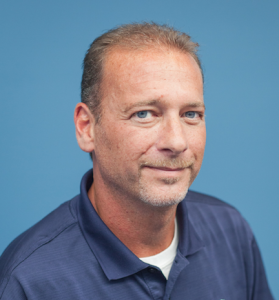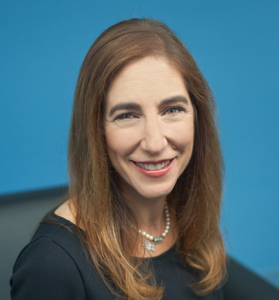This article appeared in the Philadelphia Inquirer on March 18, 2016, and was written by Chris Lombardi. You can view the original article on Philly.com here.

Mike Rappaport, CEO of Fort Washington IT firm Chariot Solutions, says he’s bemused when he hears open-source development called a “new idea.” Co-founder Tracey Welson-Rossman, now the company’s Chief Marketing Officer, feels similarly when “women in tech” or “family-friendly management” are hailed as something new or cutting-edge. These concepts are part of their company’s DNA, they said: it was built on ideas that once seemed edgy.
That may be why Chariot Solutions, this year’s #1 Small Company, also won this year’s New Ideas award. “I’m thrilled,” Rappaport told me. “There’s other awards we’ve won. But this award – this one is different, because it comes from our people.”
Both awards spring from an annual survey of workers across the Philly metro area, conducted for Philly.com every year by Exton firm Workplace Dynamics.
Founded 14 years ago as a small startup focusing on software development, Chariot Solutions has broadened its toolkit to include consulting, forwarding its mission of “helping clients achieve greater success through the intelligent application of established and emerging technologies.” Its high-profile Emerging Technologies for Enterprise (ETE) conference brings together developers and engineers from companies large (ExxonMobil) and small (San Francisco startup Stripe, Inc). This year’s ETE, in April, will feature sessions led by Watson co-creator David Ferrucci, Google’s Kelsey Hightower, and RailsBridge cofounder Sarah Mei, among many others.
The above folks’ blizzard of up-to-date software terms and packages may be why Chariot’s employees praised their new ideas. Or maybe it’s due to their au courant management principles — their “agility,” meaning a flexible and inclusive structure and approach, and their focus on “events, reproducibility, kindness in times of error,” goals recommended at ETE by Stripe’s Jessica Kerr.

But the prize may also be for the environment Chariot has created to enable all that new thinking. “We were open-source before it was cool,” said Welson-Rossman. “Agile development is in our DNA – the kind of development that really needs top people who are happy and constantly learning.”
Such an environment includes a core commitment to education, with 10 percent of employee compensation automatically allocated to professional development. “We all need to constantly be learning,” Rappaport said. “We ask our people: what do you need to learn that you don’t know? Often we can do it here, but if not we send them out!”
One beneficiary of that approach was Becca Refford, who started at Chariot as an intern. “She knew nothing about what we do…. She had no background in software at all, but then she got hooked.” Now a marketing associate, Refford’s work can be seen in the ChariotSolutions.com article “On Learning to Code – 4 Things I Want to Tell Every Girl.”
Refford came to Chariot via the nonprofit TechGirlz, a national network her now-boss Welson-Rossman founded while she was helping build Chariot. That she’s been able to do so, Welson-Rossman said, is a sign of the company’s commitment to that other perpetually-new idea; gender equity in tech.
Last year’s ETE also included authors Caryl Rivers and Rosalind C. Barnett, exploring “Why the Face of Tech Remains Stubbornly Male.”
Welson-Rossman adds that Chariot also demonstrates that egalitarian commitment with its “opportunity scholarships,” assisting women and people of color to attend ETE and other trainings, and by sponsoring of allied groups – such as “GirlDevelopIt, which is doing amazing work across the country helping women get the training they need,” she said.
The company is also proud of its reputation for being family-friendly, with work schedules that allow for family commitments and flexible spending accounts (FSA) to pay for childcare. “That FSA is in its second year now,” Rappaport said: it came from employee demand.
Rappaport added that the FSA also attests to Chariot’s record of realizing its core principles. “We really execute these ideas,” Rappaport told me. “We listen, and when we hear people need them, we come through.”
